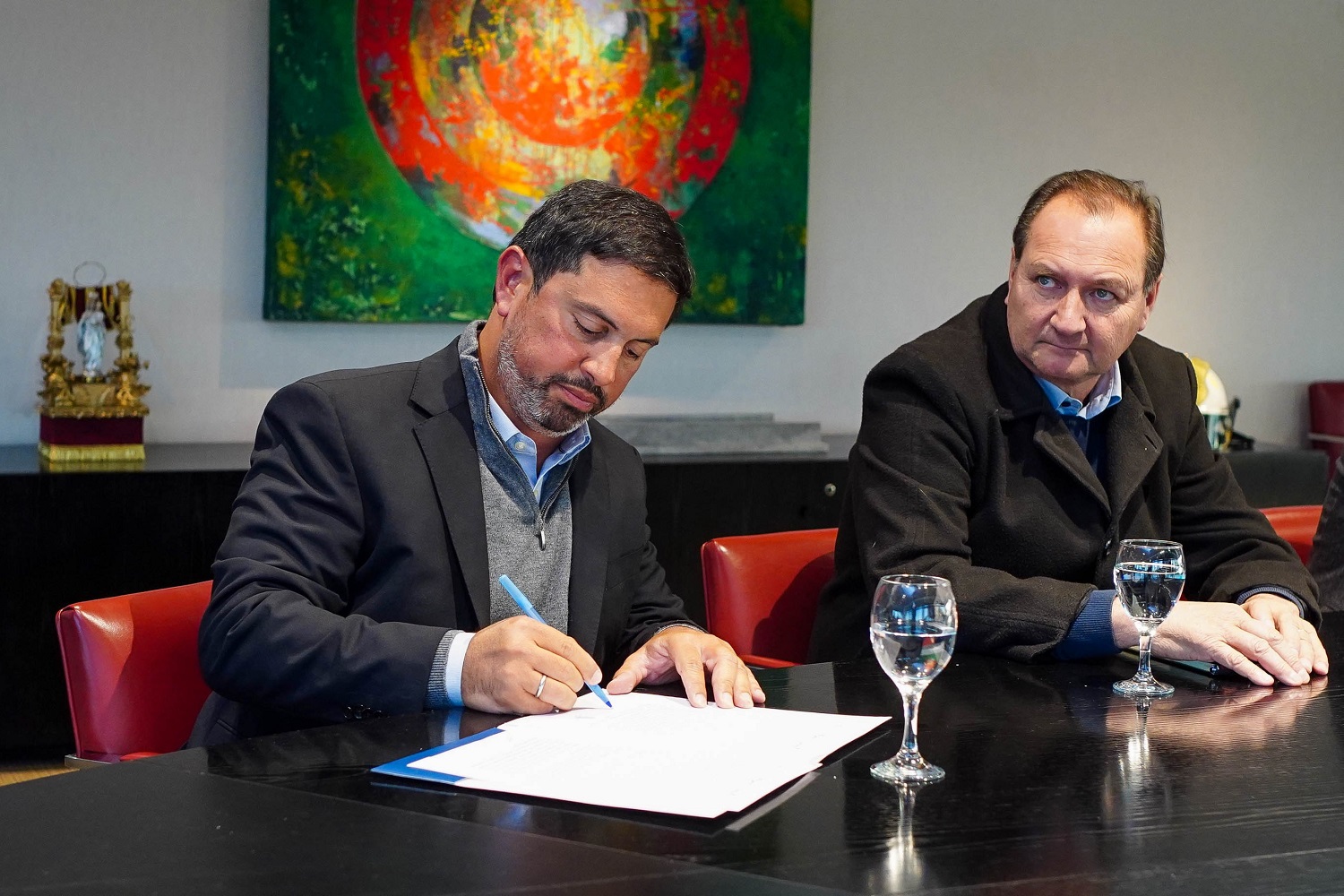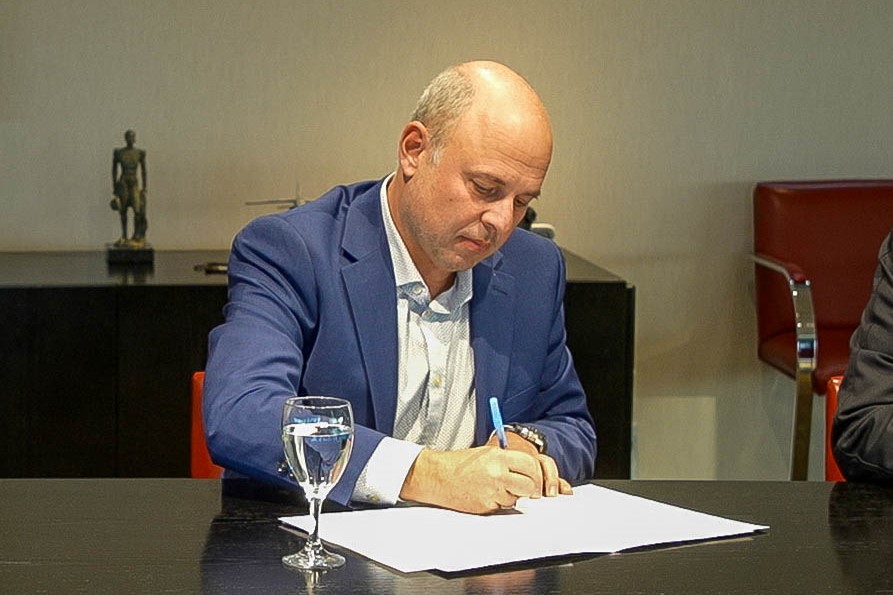- Governor Martín Llaryora has signed an agreement setting up a new dry port.
- The development will decrease domestic logistics costs and provide new opportunities for the growth of local companies.
Through ProCórdoba Agency and the Córdoba Chamber of Foreign Trade, the Government of the Province of Córdoba has executed an agreement that provides for the creation of a dry port, which will streamline logistics operations and reduce costs for 500 small and medium-sized companies in Córdoba and the region.
The agreement was signed by Governor Martín Llaryora, ProCórdoba Agency president Pablo De Chiara, and Córdoba Chamber of Foreign Trade president Miguel Zonnaras.
Also present on the occasion were representatives of both business chambers and firms that maintain international trade relations with our province.
De Chiara said that "this is a very important project that will put the province in a more powerful position and entail enormous opportunities and logistics savings to Córdoba's SMEs."
The agreement covers the development of a pilot project for greater efficiency in Córdoba's foreign trade operations. The project will be set up at the Chamber of Foreign Trade's inland terminal, located in the entity's Industrial Park.


De Chiara said that "this project will begin with a pilot stage - involving a financial commitment made by the province together with the private sector - to make foreign trade operations much more efficient, agile, and dynamic."
On the other hand, Miguel Zonnaras, president of the Córdoba Chamber of Foreign Trade, praised the joint work with the Government of the Province and said that the current goal is "to equip the Chamber's hub with an additional service for small companies exporting tangible goods."
He explained, "this will allow us to directly export from the very terminal with the container instead of having to send an empty container to Buenos Aires and shoulder the costs entailed."
He clarified that the term "dry port" refers to a facility without an outlet to the sea which allows leaving the container consolidated and ready to go so that it can be taken directly to the ships.
The Chamber's president added, "any company in Córdoba that is an exporter can use it, that's the very purpose of the project: it is being developed so that any exporter can use it."
He further expressed that in his mind, the main beneficiaries will be "mainly automotive companies, which are the major importers of parts coming from the city of Córdoba."
He estimated that "the users and beneficiaries will be approximately 500 small exporting companies which will have the container at their disposal, reducing operating costs and enjoying a much bigger opportunity for export."

Scope and benefits
The cost of logistics for exporting companies in this region of the country is one of the things that most affects their competitiveness when analyzing international trade operations from the interior of the country.
Based on this diagnosis, the Chamber developed its container terminal with the aim of avoiding unnecessary freight. This provides a real answer to the dilemma of having to bring a container from the Port of Buenos Aires to consolidate export cargo or return it to the port when importing parts, pieces or supplies.
Expected benefits include a 25% reduction in the costs associated with the internal logistics of foreign trade operations for companies in Córdoba and the region.
The project also aims to protect the environment by cutting down the port transit-related carbon footprint by 50%.
This goal will be achieved by reducing unnecessary routes and optimizing the use of fuels.
Another goal is to strengthen commercial and institutional relations between the Córdoba Chamber of Foreign Trade, ProCórdoba Agency, foreign trade operators, and shipping companies.
Finally, the aim is to develop a technological platform to facilitate for the planning and use of containers available at the dry port in Córdoba and their means of transport. This will enable companies to optimize logistics operations and lower costs.

